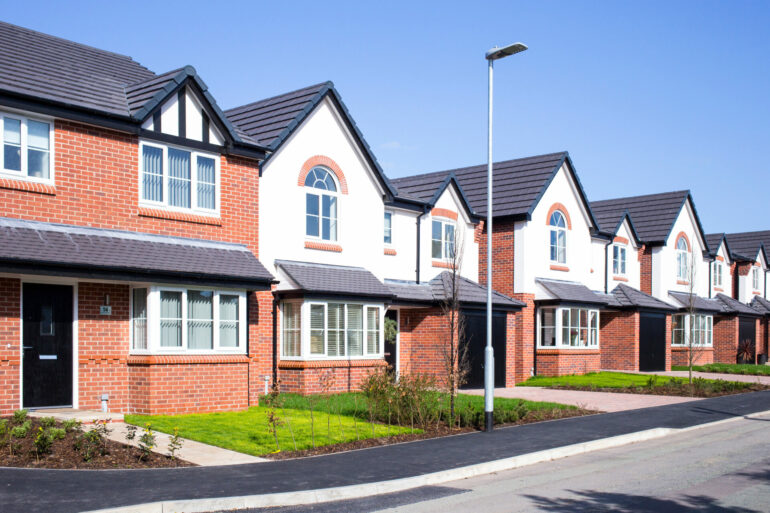House prices have hit a record high, with the price of the average home now topping £270,000 for the first time, according to Halifax’s latest house price index.
This monthly data shows annual house price inflation was running at 8.1% in October, up from 7.4% the month before. This pushed the price of the average UK property up to £270,027.
In total the value of the average property grew by 0.9% in October, adding £2,500 onto the value of this home.
This is the fourth month in a row that prices have risen, and annual house price inflation is at its highest level since June. On a quarterly basis prices are up by 2.3%.
This confirms data published earlier this week by Nationwide Building Society, which also said prices had reached record levels.
This Halifax data shows that much of this growth is being driven by regional house price inflation, rather than from London and the South East, with property prices in Wales, Northern Ireland and Scotland continuing to outperform the UK average.
Halifax managing director Russell Galley said: “One of the key drivers of activity in the housing market over the past 18 months has been the race for space, with buyers seeking larger properties, often further from urban centres.
“Combined with temporary measures such as the cut to stamp duty, this has helped push the average property price up to an all-time high of £270,027. Since April 2020, the first full month of lockdown, the value of the average property has soared by £31,516 (13.2%).”
Wales remains the strongest performing nation or region with annual house price inflation of 12.9 per cent. The average property price in the region is £198,880.
Northern Ireland has recorded its strongest house price growth for four months, with prices rising by 11.3% to give an average property price of £169,398. In Scotland house prices are up by 8.6 per cent year-on-year with the average property worth £190.023.
In England the north west has returned to being the strongest performing region, with prices rising by 10.4% over the year. The average property in this area is now worth £205,881.
London remains the weakest performing area of the UK, with annual inflation of just 0.8%, from an increase of 1% in September. This is the lowest year-on-year increase in prices since February 2020.
Average property prices in the capital though remain at £514,907, substantially higher than other parts of the country.
Galley added that in recent months the market has been underpinned by first-time buyers, supported by parental deposits, improved mortgage access and low borrowing costs.
First-time buyer annual house price inflation (9.2%) is now at a five-month high, and has pushed ahead of the equivalent measure for homemovers (8.1%).
Galley added: “More generally the performance of the economy continues to provide a benign backdrop to housing market activity. The labour market has outperformed expectations through to the end of furlough, with the number of vacancies high and rising relative to the numbers of unemployed.
“With the Bank of England expected to react to building inflation risks by raising rates as soon as next month, and further such rises predicted over the next 12 months, we do expect house buying demand to cool in the months ahead as borrowing costs increase.
“That said, borrowing costs will still be low by historical standards, and raising a deposit is likely to remain the primary obstacle for many. The impact on property prices may also be tempered by the continued limited supply of properties available on the market.”
Commenting on this data estate agent and former RICS residential chairman Jeremy Leaf added: “These figures are no real surprise as they mirror Nationwide’s and confirm what we have been seeing on the ground – there is still plenty of life left in the market, even though buyers and sellers can no longer take advantage of government support schemes.
“However, they can still benefit from record low mortgage rates and many, particularly those entering the market for the first time, must have breathed a sigh of relief yesterday when interest rates remained unchanged.
“Looking forward, we expect not much change with more demand for houses than flats, masking larger differences in percentage changes.”
SPF Private Clients chief executive Mark Harris said: “The return of first-time buyers to the market, helped by high loan-to-value mortgages and the help of the Bank of Mum and Dad is welcome, as they are the lifeblood of the market. However, with first-time buyer annual price inflation higher than that of movers, one wonders how long they can keep up with rising prices.”




